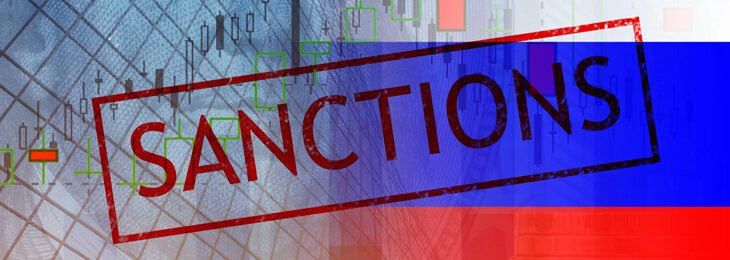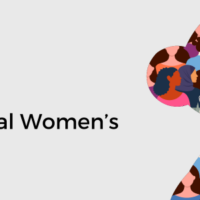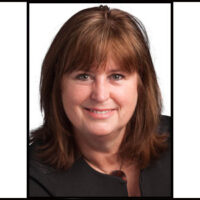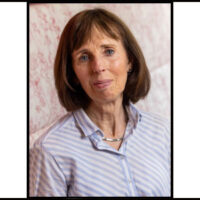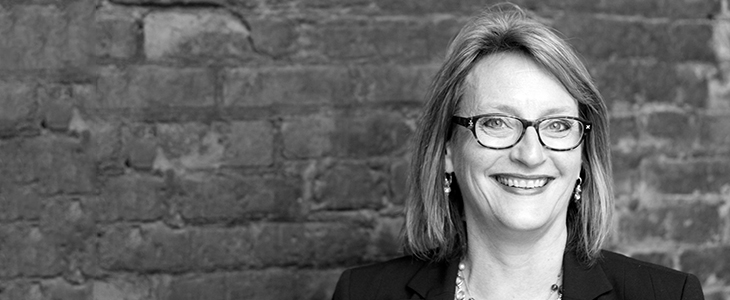
ACAMS Today caught up with Sande Bayer, vice president of payment services and chief risk officer/AML at U.S. Bank, to discuss the prevention of human trafficking, her humanitarian trips to Thailand, and how AML professionals can become involved in eradicating human trafficking.
Bayer has over 25 years of experience in the financial industry including insurance, brokerage products, and the banking industry. Her roles and responsibilities have included management, training and compliance oversight. Bayer’s current focus includes anti-money laundering (AML) oversight for payment products including credit card and prepaid/stored value systems. Her most recent engagement is with enterprise and business line projects to meet heightened know your customer/customer due diligence requirements. Bayer is a founding member of the ACAMS Greater Twin Cities Chapter and currently serves as co-chair. She is actively involved with the Minnesota Region Chapter of Not For Sale (NFS), an organization that raises awareness and increases efforts to cease global human trafficking.
ACAMS Today: CNN has set aside March 14 as #MyFreedomDay. During this day, students from around the world will be raising awareness about modern slavery. Could you share with us when you first started bringing awareness to human trafficking (HT) and what you have been doing these past years to help prevent HT?
Sande Bayer: I first realized my passion—but really it was anger at first—for trafficking 10 years ago or so. I heard a story being told by David Batstone (co-founder for Not For Sale and a recent recipient of the U.N. Peace Award) of his favorite restaurant being raided for trafficking. I was naïve and believed this crime didn’t exist anymore, or if it did, I believed it was in some corner of the world that I did not need to be worried about. I started volunteering with a local program that worked with rescued women in the St. Paul/Minneapolis area. Breaking Free has been instrumental in Minnesota’s approach to recognizing this crime and developing care and legislation that needs to be addressed. My interest in HT grew and I began attending seminars and programs to learn more. I think I was searching for someone to tell me this really wasn’t happening, the numbers weren’t that high, and that the amount of money involved had been exaggerated—just like the survivor stories. I couldn’t accept this appalling treatment of women. This couldn’t really be as horrific and as massive of a problem. My interest became a passion and I accepted a dare to sign up for my first mission trip to the red light districts in Bangkok, Thailand. That first trip was a trigger for me to become a leader on the next three trips I would take. Each trip has its own stories and they take me deeper as my confidence and boldness increases. We’ve seen and heard stories of sex trafficking being a family business for generations, mothers selling their daughters, children kept in cages, irreparable physical injuries, organ harvesting and the despair these girls can experience. This has led me to share my stories with our local ACAMS Chapter and support our programing of learning events for our AML community. There is no shortage of ways to join this effort. Local faith-based organizations have support groups, and local and national programs are always looking for volunteers/interns. Financial support is always welcome, but so is your time. Everything from web page development to caregiving, teaching life skills, preparing meals and donations for housing are ways to become involved.
Preventing trafficking needs to be a global effort. The vulnerable need to become self-sustainable and less approachable to the traffickers. Human trafficking is more than the sex trade—it includes labor and organ trafficking. I’ve become much more aware of the supply chains of my purchases. For example, child labor is rampant for precious stones, cocoa and rubber plant harvesting. Men and boys are taken for fishing boats in South East Asia and are not allowed to return home. My shopping habits are intentional now. This type of awareness and action is something everyone can do without being in the front line. There is no shortage of how to support anti-trafficking depending on your availability and comfort levels.
AT: Could you tell us more about your efforts in fighting HT in Thailand and when you are planning your next trip?
SB: I have vivid memories of my first impressions of Bangkok. It was September and it was stifling due to the heat and humidity, the combination of smells were unrecognizable, I couldn’t distinguish any of the signage written in Thai and I didn’t understand any of the banter between the cab drivers speaking in Thai. I had nothing at that moment that was familiar and I needed to trust and move forward with the unknown. Was this a brief glimpse to how trafficked girls feel?
When in Thailand, some of our time is spent in partnership with existing nongovernmental organizations (NGOs) who have established presence in the red light districts. We are involved in ESL classes and beauty shop afternoons. During these times, the girls can begin to feel comfortable and trust is established. Stories and laughter is shared. These relationships are essential. The girls know who and where to go when they are ready to leave the life. Providing safety without shame is critical.
Some of our most heartfelt work has been done independently. We have smaller groups that go to the bars or beach (the girls solicit heavily there) before “working hours” to offer free manicures. Everyone loves getting free manicures and it is a great icebreaker for conversation and laughs. Any personal information we get (e.g., names, age, village of origination and other details) is shared with the NGOs. These stories are nothing like the stories our daughters share. We’ve heard and seen brandings, torture, abuse, drug and substance dependencies and general absence of life in their eyes. There are moments this fight feels overwhelming and a sense of discouragement sets in. Those are the moments where the story of the young boy walking down the beach who throws the one starfish back into the ocean, claiming that he saved one, refreshes our energy.
Our next trip will be at the end of the summer this year and it will include spending time on the Burmese border and some of the villages known for girls being sold or leaving for the sex trade. We’ll also spend time in Pattaya on Walking Street, the beach and local bars. This trip will be intentional on recognizing preventive efforts that can be supported or implemented, as well as on the rescue and restorative needs.
AT: We have heard lately, about the HT that occurs during big events such as the Super Bowl or Olympics, what can we do as financial crime prevention professionals to fight HT at these events or how can we bring more awareness to this heinous crime?
SB: Minnesota is hosting the Super Bowl in 2018 and we’ve had a lot of discussion on human trafficking and large sporting events. Definitive statistics are challenging to find, especially from the headlining sports business, but local law enforcement (LE), medical teams, hospitality and rescue resources will confirm a dramatic spike in this activity. These events support the need for a strong partnership and communication with our local LE. Geographical transaction monitoring and any real-time alerts could literally be lifesaving in these instances. Planning for these large events begins months in advance. I would suggest that these planning boards also include FI representation along with the LE, hospitality, Chamber of Commerce, Attorney General and other business representation.
AT: What is the most important lesson you have learned that has helped you succeed in your career and in efforts to thwart modern slavery?
SB: There are a couple of critical points I’ve learned, and wish I would have learned, or accepted them sooner. The first is to be where your passion is. It needs to excite you, drive you to stretch and reach for more, and motivate you to either complete a task or embark on a new endeavor. Without the drive passion gives you, your chances of feeling a sense of accomplishment and success are minimized. Most of us don’t love every facet of our jobs, but I am honored that within the AML field, the passion to eradicate all forms of human trafficking is widely shared. The AML space is filled with talented, knowledgeable and dedicated people who truly want to abolish these crimes. When passions are shared and energies are focused, success is achievable!
The other critical lesson I’ve learned is that one person can’t do everything, but everyone can do something! Find out what your strengths are and expand on those, and be flexible to try new tasks. I’ve experienced strong accomplishments both professionally and personally by knowing my strengths and my willingness to seek and accept new experiences. Don’t be surprised to see where your passion may lead you in the fight against crime. I challenge you to take the necessary steps to follow the path your passion puts in front of you and see where it leads!
AT: Last week, we celebrated International Women’s Day and their campaign for this year is #BeBoldForChange. What do you believe is the most important change women can make in 2017?
SB: The most important change we can make is to embrace our strengths and attributes, and not feel diminished because of our individuality. There is such a multitude of issues (e.g., pay equality, employment, education opportunities, violence) and other areas of inequality. If we begin by acknowledging ourselves and recognizing the positive characteristics in others, we can lift each other up and promote change. I believe that respect for ourselves and others will create a foundation to address these complex areas.
AT: Who would you say has made a significant impact in your life either professionally or personally?
SB: It’s hard to say just one person. My parents encouraged me, as a young girl, to believe in myself, and that I could be accomplished and successful with my career. The many advocates who tirelessly work to eradicate all forms of human trafficking and the sacrifices they make have also made a significant impact in my life. I’m privileged to have met some of you and I am honored to share this passion with everyone at every level of this battle. And finally, a young girl named Moon who I met in Thailand impacted my life through her hugs, tears, beautiful big brown eyes and the simple phrase “Thank you” when we assisted with her rescue. These are the people who have impacted me to keep forging ahead.
Editor’s Note: ACAMS Today is continuing to celebrate International Women’s Day throughout the month of March and also bringing awareness to CNN’s campaign on March 14 of #MyFreedomDay.





